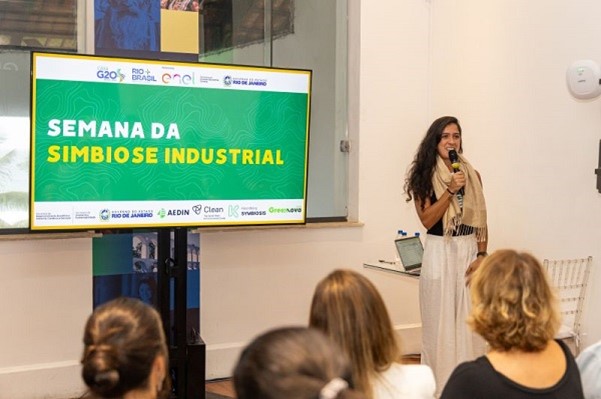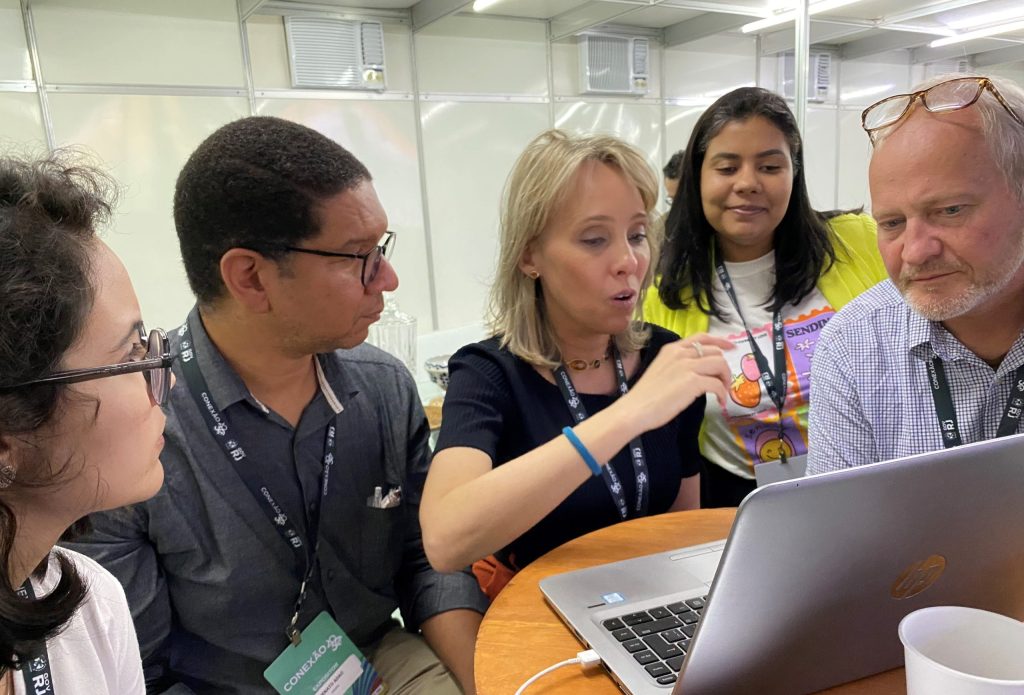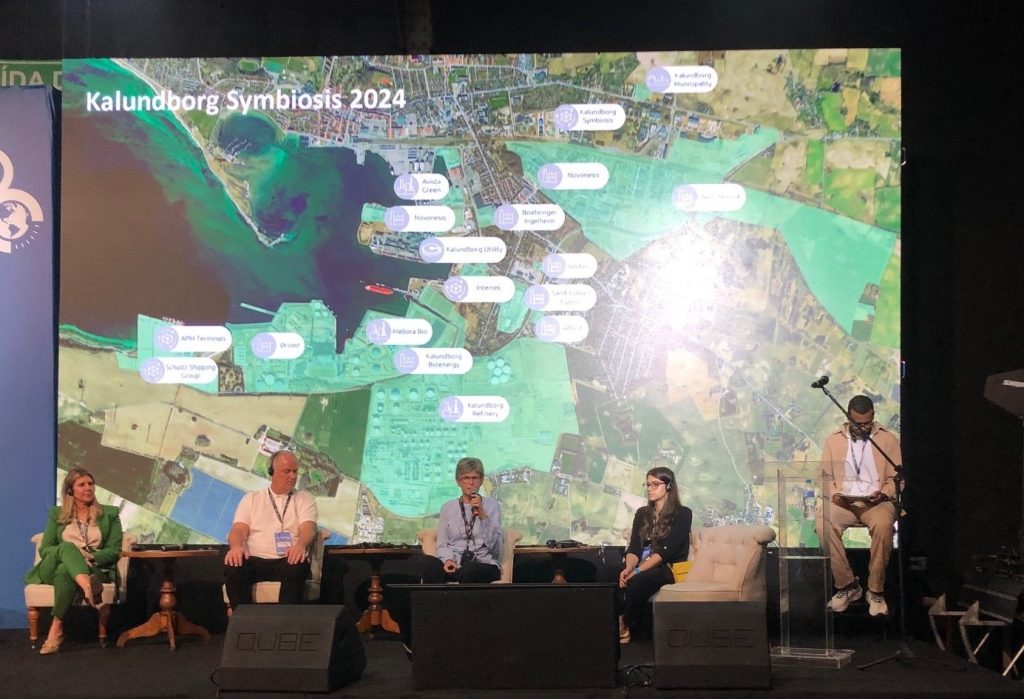Industrial symbiosis—the collaborative use of resources across industries to achieve greater sustainability—is gaining traction worldwide, and Denmark’s Kalundborg Symbiosis stands as a shining example of what’s possible. As part of its strategic mission to inspire the global community, Kalundborg Symbiosis has worked to promote this innovative model through impactful partnerships and initiatives.
In 2024, the Kalundborg Symbiosis administration contributed to a project in Rio de Janeiro, Brazil; the Pathways to Resource Efficiency in Santa Cruz Industries project (PRESI), an effort funded by the Danish Energy Agency and spearheaded by Clean. The project focuses on exporting Danish expertise in industrial symbiosis to international markets, with a compelling case study in the Santa Cruz Industrial District of Rio de Janeiro. This vast industrial cluster, organized by AEDIN – Associação das Empresas do Distrito Industrial de Santa Cruz, already demonstrated strong cooperation, provided fertile ground to explore how industrial symbiosis principles could be adopted to foster a more circular economy.
Sowing the seeds of circular collaboration
The development and innovation efforts with Brazilian partners have been ongoing for two years. In the first year, Brazilian stakeholders followed a similar project that Kalundborg Symbiosis conducted for the Danish Energy Agency in Oregon and Washington State, USA. In the following year, the partners were ready for a more significant effort and support for the work they had already initiated.
A highlight was a delegation visit to Rio de Janeiro, featuring inspirational presentations and workshops for public and private decision-makers. Equally significant were the parallel company visits, which included screenings to identify symbiosis potential. These screenings were subsequently condensed into a report that elaborated on the identified potentials and recommended next steps for the cluster’s implementation of circular production practices.
Another key highlight was participation in the G20 Social Summit, held in Rio as part of the G20’s hosting there. Representatives from Kalundborg Symbiosis, businesses, universities, and cluster organizations engaged with local stakeholders. During the visit, the potential for industrial symbiosis in Santa Cruz was further explored, serving as inspiration for additional symbiosis efforts in other industrial areas in Rio—and globally.
The Kalundborg and Santa Cruz cases were showcased through panel discussions and exhibitions. They presented a compelling narrative about the value of collaboration with Kalundborg Symbiosis and emphasized the global relevance of industrial symbiosis.
Bridging academia and industry
The cooperation with Brazilian partners also featured an Academic Project on the interdisciplinary competencies needed to prepare the next generation of professionals to implement industrial symbiosis. The project included a workshop during the G20 Social Summit, which brought together Danish and Brazilian universities on developing a curriculum on industrial symbiosis. This academic collaboration underscores the critical role of education in driving systemic change and equipping future talent to address global sustainability challenges.
Recognizing success and scaling impact
The PRESI project was awarded third place by the Brazilian Ministry of Foreign Affairs and ApexBrasil among initiatives that have most effectively enhanced Brazil’s international profile. This recognition is a source of great pride for the industrial cluster AEDIN, the State of Rio, Clean, and Kalundborg Symbiosis. Read more here
Building on the momentum created by the PRESI project, the Danish Energy Agency has allocated funding for a PRESI II project set to begin in 2025. This next phase will consolidate the work in Santa Cruz and support the dissemination of industrial symbiosis and circular production practices throughout the Rio de Janeiro region. The local efforts continue with renewed strength through the newly established AEDIN Symbiosis collaboration. This initiative focuses on advancing joint infrastructure projects, communicating about the symbiosis ecosystem, and developing an action plan for the coming years. Once again, local efforts will be bolstered by the expertise of Kalundborg Symbiosis, both through technical screenings to identify potential synergies and the use of facilitation and anchoring tools.
Stay tuned as this work continues to unfold, catalyzing a global movement toward resource-efficient, circular production systems.




